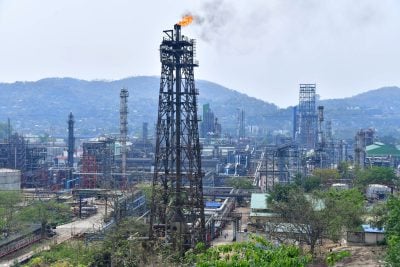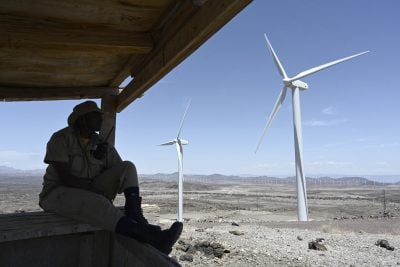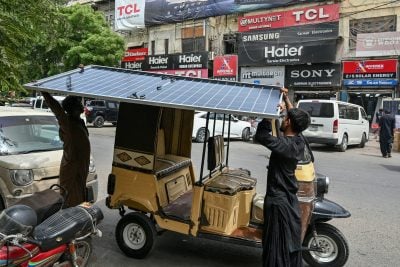With their members harried by security forces and their headquarters facing attacks from the state, the late 1980s was a testing time to be a leading South African trade unionist.
But while the turbulent era was a time of high danger, for Jay Naidoo – the Durban-born shop steward who rose to national prominence as general secretary of the Congress of South African Trade Unions (COSATU) – it was also a period of unprecedented worker unity.
Forged in the heat of the battle against apartheid, the highly influential COSATU – which Naidoo led from 1985 to 1993 – led its own battle against minority rule in the nation’s mines and factory floors.
Fast forward to 2015, however, and despite claiming almost 2m members from industries as diverse as mining and food production, the reputation of the once-mighty union federation has reached a low ebb.
It has been accused of overly cosy relations with its long-time ally, the ruling African National Congress (ANC). It has been riven by the unprecedented expulsion of its general secretary, Zwelinzima Vavi, as well as its largest affiliated union.
And it is struggling to prove its relevance to South Africa’s working classes against a backdrop of economic and political strife.
“I think the federation has run out of steam,” says Naidoo at his home in Johannesburg.
“I think that the basis of an alliance with a political party is no longer a necessity of the current environment…I don’t think the trade union membership gains anything from it.”
As one of the architects of the tripartite alliance – the unity pact forged between COSATU, the ANC and the South African Communist Party in 1990 – as well as a minister in Nelson Mandela’s inaugural ANC government, Naidoo might be an unlikely figure to call on COSATU to rethink the political alliance.
But the former minister responsible for the Reconstruction and Development Programme is adamant that the federation needs to return to its primary role as a representative of workers.
“In a sense, the alliance becomes a bit of a vote bank for the ANC, which basically gets mobilised at the time of an election,” he says.
“Increasingly what happens is that a large part of the national leadership becomes so tied to the political power that the point of reference is those in power looking up to government rather than building power at a shop floor level.”
Troubles in the unions
Evidence of a split in the trade union movement spilled most clearly into the open last year when the National Union of Metalworkers of South Africa (NUMSA) was dramatically expelled from COSATU after withdrawing support for the ANC’s general election campaign. Since the signing of the unity pact, there has been an expectation that COSATU affiliates will deliver their support to the ruling party.
The fallout of that decision – and its consequent impact on NUMSA’s 350,000-plus exiled members as well as the wider labour movement – has left COSATU’s historic motto, ‘An injury to one is an injury to all’, ringing true.
Naidoo believes NUMSA’s “unprecedented” expulsion by “a few dozen people around the table”, and the subsequent ejection of COSATU’s general secretary Vavi shows the urgent need for new direction.
Amid the factional squabbling, there have been signs of new leaders emerging to fill the vacuum. Early June saw the election of David Sipunzi as general secretary of the National Union of Mineworkers (NUM), historically one of COSATU’s largest affiliates with over 300,000 members.
Sipunzi has publically called for the reinstatement of both Vavi and NUMSA – a setback to COSATU’s current leadership under Sdumo Dlamini.
The NUM’s problems are a microcosm of those suffered by COSATU. Regularly accused of being too close to the companies it is meant to hold to account, the union is desperately in need of rejuvenation after ceding ground to the Association of Mineworkers and Construction Union (AMCU). AMCU, a more militant outfit which formed in 1998 after a split with the NUM, has made a name for itself through its wildcat strikes and bold salary demands, particularly in the crucial platinum sector.
Critics contend that AMCU has left the more established NUM looking flat-footed and in thrall to management. Those allegations gained particular traction after the deadly strike at Marikana in 2012, when NUM leaders were accused of opening fire on miners days before the police massacre of 34.
With the NUM looking to turn a page on that troubled period, Sipunzi will be under close scrutiny as wage negotiations commence in the gold sector.
According to a Chamber of Mines website tracking the negotiations, the NUM represents 54% of employees in the sector, compared to 29% for AMCU. Companies throughout the extractive industry will be hoping that a broad-based agreement will help stabilise a mining sector that has suffered an estimated 35,000 job losses in two years.
Although he believes that such a fraught environment could weaken the trade union movement, Naidoo argues that AMCU has a legitimate role to play in the new workers’ landscape.
“At the end of the day, AMCU is a real trade union,” he says. “It represents 100,000 members. No matter what you think of it politically or how militantly it negotiates on behalf of its members, it’s embraced the principal of collective bargaining. I would be worried if we had trade unions that said they want nothing to do with collective bargaining.”
New thinking
While today’s trade unionists and mining companies appear caught in a cycle of strikes and wage disputes, Naidoo himself has proven himself ready to move into new spheres and spurn old certainties. Once a trenchant socialist, Naidoo is now a man who wears many caps – from trade union sage to development expert to global nutrition advocate.
But if there is a thread linking Naidoo’s union days with his later government roles and current NGO activism, it is a deep concern that South Africans should use all the means at their disposal to help deliver the spoils of the democratic dispensation and bypass a “predatory political elite”.
“I think there have to be countervailing forces to even the institutions of democracy, and that is an independent media, an independent civil society and, for me, it’s an independent private sector.”
With South Africa in desperate need of new thinking to overcome political and economic drift, Naidoo may offer a pragmatic path forwards – it’s not every day that a proud former reader of Marx and Lenin calls for both strong unions and a strong private sector.
David Thomas
Want to continue reading? Subscribe today.
You've read all your free articles for this month! Subscribe now to enjoy full access to our content.
Digital Monthly
£8.00 / month
Receive full unlimited access to our articles, opinions, podcasts and more.
Digital Yearly
£70.00 / year
Our best value offer - save £26 and gain access to all of our digital content for an entire year!

 Sign in with Google
Sign in with Google 




